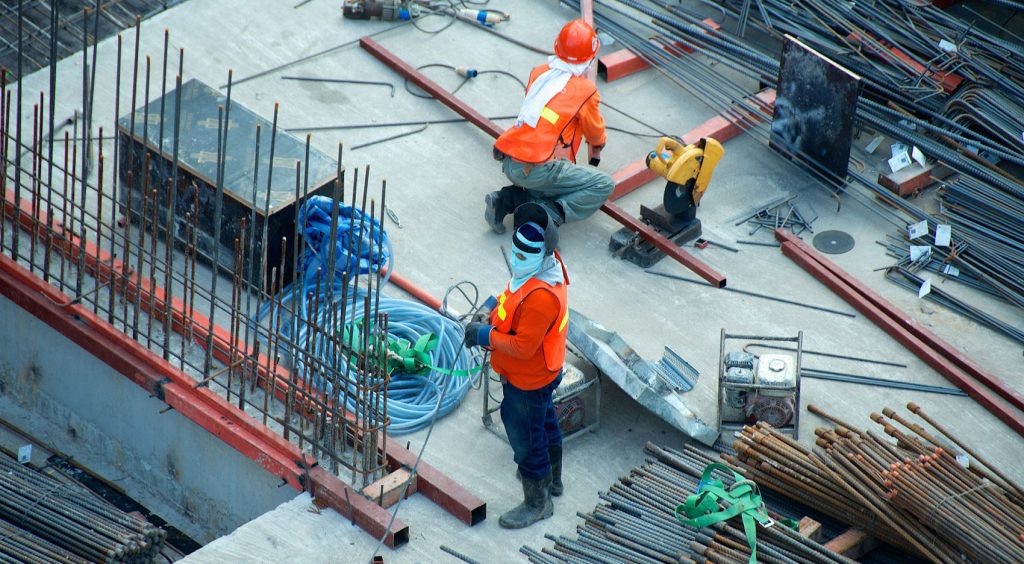In the past, companies built a good reputation by offering deals with their building scraps. Now, it’s about being a good corporate citizen—running sustainable operations and giving back to local communities. We know resources won’t last forever, so building scraps are needing to be appropriately recycled. Today, people expect businesses to protect the planet for future generations. If you’re running a commercial construction site, you need to manage your building scraps sustainably. Here are four tips to help you start.
1. Recycle Your Building Scraps—and Get Paid
Job sites generate a ton of metal. It’s tough to get rid of and doesn’t break down in the environment. But metal can be recycled endlessly. In fact, all steel made in New Zealand includes recycled scrap. Best of all—you get paid for your scrap. It’s a win for your wallet and the environment. If you need a scrap yard in Auckland, Endless Metals can help with pick-up options to keep it simple.
2. Scrap Appliances After Demo Jobs
Demo work often leaves behind appliances, e-waste, cables, and other junk. Good news—appliance recycling is part of smart building scrap practice. You can recycle basins, microwaves, toasters, and hot water cylinders. Building scraps aren’t just metal; almost everything has scrap value.
3. Collect Rainwater On-Site
Set up a barrel to collect rainwater from your roof. You probably won’t drink it, but it’s perfect for washing tools or watering landscaped areas. Commercial sites use a lot of fresh water. Reusing rainwater helps reduce the load on local water systems.
4. Recycle All Packaging Waste
Plastic, paper, and cardboard packaging from tools and supplies build up fast. Make sure you have recycling bins on-site. Let your team and contractors know where to find them. Simple setup—big impact.
Is Your Recycling Strategy Up to Scratch?
Every bit of waste adds up—especially across thousands of sites nationwide. Sustainability isn’t just a trend; it’s the new standard. Metal recycling is one of the biggest issues for construction sites. If you’re in Auckland, contact Endless Metals. We’ll help you choose the best scrap metal recycling solution for your business.
1. Recycle your Building Scraps and get Cash too
Job sites can generate a whole lot of metal that can be a headache to get rid of. Metal obviously doesn’t break down in the environment, so if it goes to landfill it’s going to be sitting there for a long time. For the same reason, metal can be recycled again and again – in fact, all steel produced in New Zealand is made partially from scrap. The best thing about metal recycling is that you actually get paid for what you scrap, so it’s a win for the environment, and for your finances. If you’re looking for a scrap yard in Auckland, we offer a range of options for picking up scrap, so it doesn’t need to be difficult.
2. Scrap appliances after demo jobs
After demolitions, you may end up with a large amount of junk from the interior of a home or building, including appliances, computer waste, cabling and so on. Luckily, appliance recycling is also a great sustainable practice. The term ‘building scraps’ doesn’t just have to refer to shards of metal. You can scrap almost anything – basins, toasters, microwaves and hot water cylinders – meaning nothing from your demo job has to go to waste.
3. Collect rainwater
It’s relatively easy to construct a barrel to collect rainwater draining off the roof. You might not want to drink this water, but it’s great for all kinds of uses on commercial sites, like washing down tools and watering landscaped areas. Commercial operations place a big demand on freshwater resources, so using rainwater really helps to protect these systems from undue stress.
4. Recycle all Building Scraps
The packaging from all kinds of materials, tools and other items coming into your commercial site can generate a lot of plastic, paper and cardboard waste. This should all be recycled and, to make sure that it is, ensure that there are bins for collection on your site and that your employees and any contractors know where to find them.
Is your recycling strategy up to scratch?
Every little piece of material is important, since it all adds up in the long term and over the thousands of commercial sites nationwide. The world is only becoming more and more sustainably minded, so you really need to join in on the trend sooner rather than later. Metal recycling is probably the biggest area of concern for most construction sites, so finding a good scrapper in your area is important. If you’re in Auckland, get in touch with us at Endless Metals to talk about our wide range of scrapping options and which one is the best suited for you and your business.[/vc_column_text][/vc_column][/vc_row]
